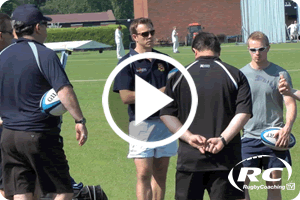
Using The Process Skills
When coaching children you need to understand that each individual is driven by varying needs, abilities and values which are still developing.

In coaching it is important to adopt good practice when you see it and practice it in your delivery. Very often we will run qualification courses only to observe these same coaches a few months later coaching as if they hadn’t been on the course! A great example of this are the process skills.
What are the coaching process skills?
One huge area that Coaches tend to forget or not practice are the Process Skills - these are invaluable to you being able to impart the knowledge and understanding of your coaching philosophy to your players.
To remind you of the Process Skills - here's a simple run down:
- How we deliver is really important - style, positioning, body language - these all impact on the instruction of the practice.
- A picture paints a thousand words, many learners need to see what you are trying to communicate. Once they see it they have a far better idea of the actual performance expected. But the demo must be correct and faultess - otherwise don't be surprised if they do it wrong by copying the wrong demo.
- Fault correction relies on you observing what is happening and being aware of the factors that are perhaps not correct or need development. If you do not see it then this is most probably down to a lack of knowledge of the technical template ie. there is a gap in your knowledge. Simply put, poor observation, leads to a lack of fault correction which leads to a lack of technical guidance and limited progression.
- Feedback stems from what you see. If it's what you want to see and the outcome is correct then you can praise it - this praise needs to be specific not general and linked to a name for more personal anchoring and recognition.
- By understanding how to break up a technical practice you can then provide specific key factors that allow good practice without overloading the learner - a common mistake is for the coach to impart all the factors at the same time - completely baffling the players with exactly what they are meant to deliver and focus on.

What not to fall into as a coach?
The easiest trap to fall into is the autocratic coaching style, namely telling your players what and how to do something. Coaches of all levels, abilities and experience fall into the trap of Coach-Centred Coaching rather than Player-Centred Coaching.

Coaches slip into the TELL style for various reasons:
- Movement of the players
- It's easy to do so
- It’s the way they were coached
- It gets it done
- No time to extend the session
- They believe players want to be told
- They know no other way.
While there is some truth in this style of coaching, and many very successful coaches have made their careers this way, you need to be aware of the context. Elite or professional rugby is very different to grassroots, very often the methodologies employed by the Elite Coaches come out of the Stone Age but they are effective for the situation the coach finds themselves in.

